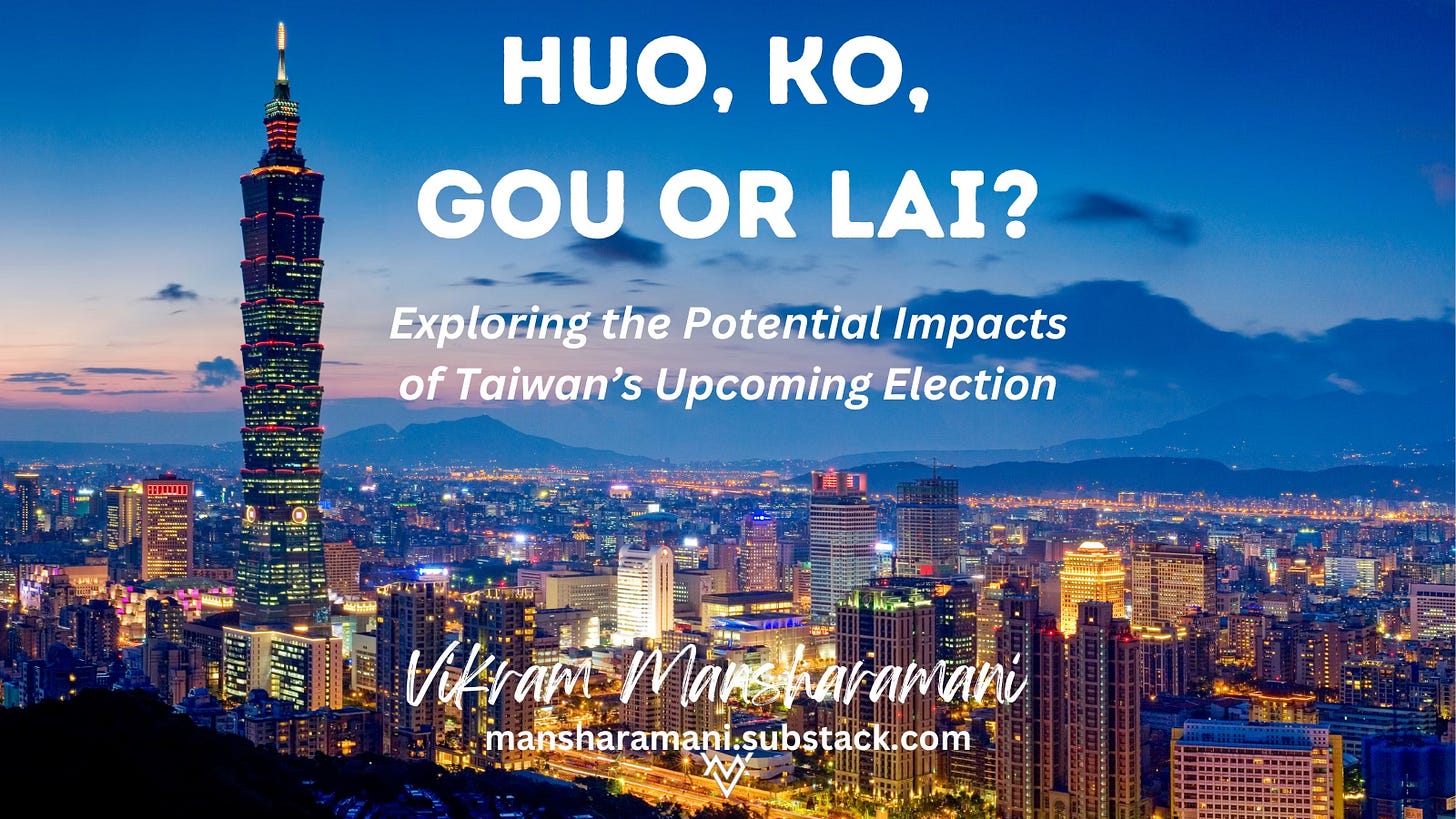Hou, Ko, Gou or Lai?
Exploring the Potential Impacts of Taiwan's Upcoming Election
On January 13, the Republic of China (also known as Taiwan) will hold its next presidential election. The outcome of that election will impact Taipei’s relationship with Beijing and could lead to a material change in the nature of cross-strait relations. It very well may determine whether or not China decides to militarily “reintegrate” the island natio…
Keep reading with a 7-day free trial
Subscribe to Navigating Uncertainty to keep reading this post and get 7 days of free access to the full post archives.


